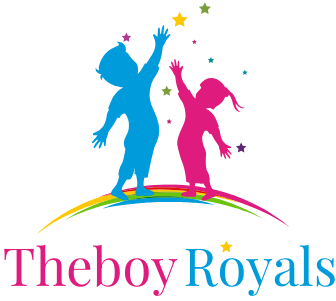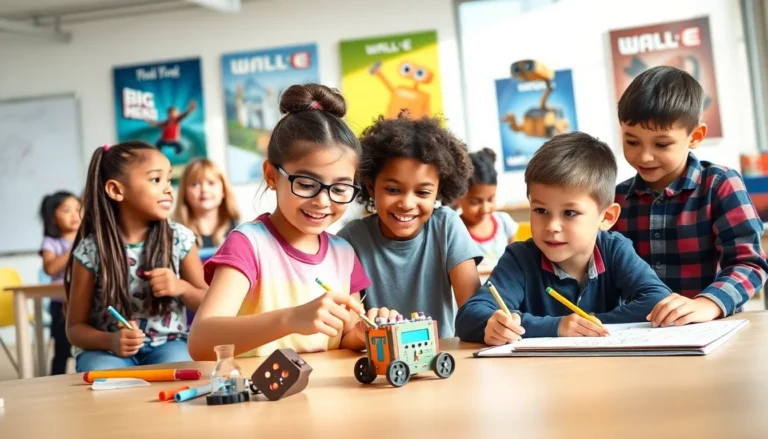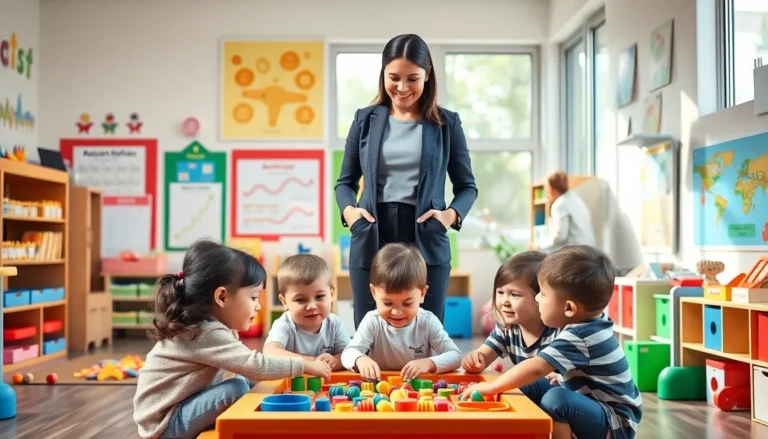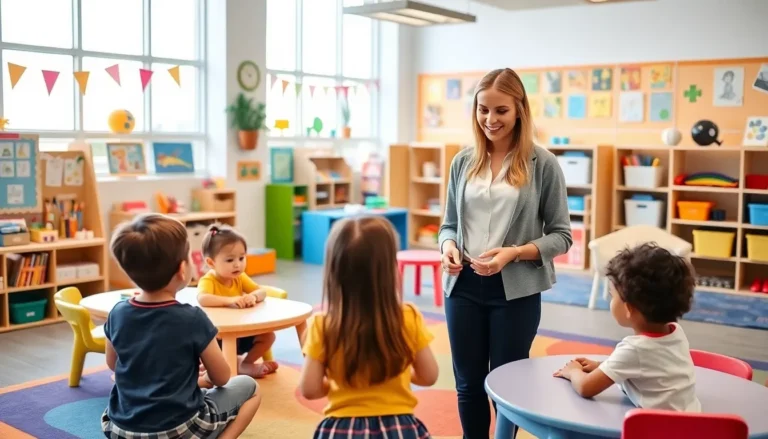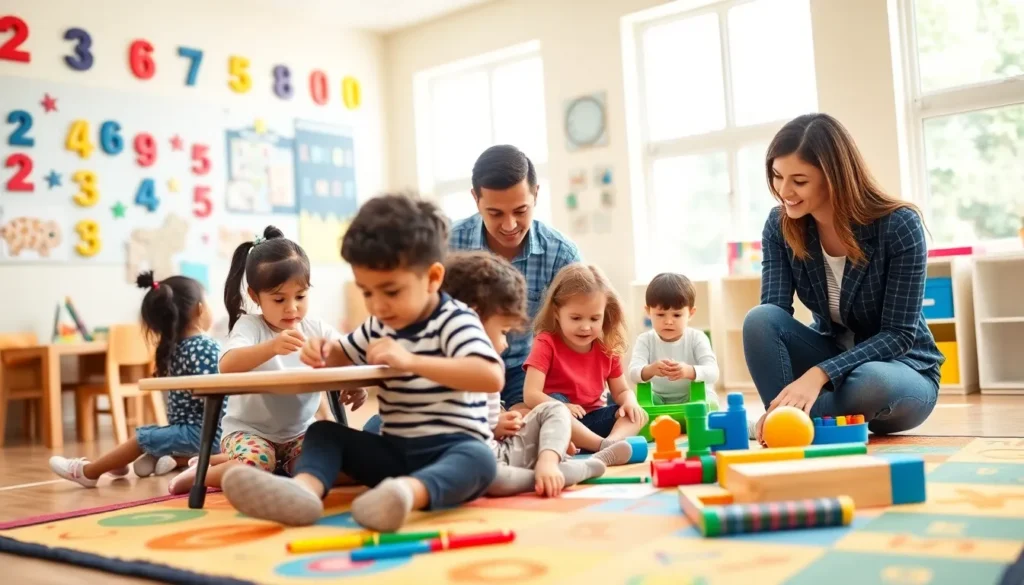Table of Contents
ToggleIs your little one ready to step into the world of preschool? If you’ve ever caught yourself pondering how old preschool age really is, you’re not alone. Parents everywhere are trying to decode the mystery of when to swap their toddler’s toy box for a backpack full of crayons. Whether you’re itching to get your kiddo into the learning groove or simply navigating the maze of developmental milestones, understanding preschool age can feel like a real challenge. Well, fear not. Buckle up as we unravel the age range that defines this exciting educational stage and explore the critical factors that come into play.
Defining Preschool Age

Preschool age is generally defined as the period before a child enters formal schooling, typically ranging from ages 3 to 5. But let’s dive a little deeper. This is more than just numbers on a page. Preschool age provides children a platform to explore learning through play, social interaction, and early educational experiences. Think of it as the sweet spot where curiosity meets structured learning. In this delightful phase, children start to develop essential skills like communication, motor skills, and early literacy. So, while 3 to 5 sounds straightforward, the essence of preschool age is about nurturing potential and preparing young minds for future academic adventures.
Typical Age Range for Preschoolers
Now that we’ve cast a wide net on what preschool age entails, let’s talk specifics. Most children begin preschool anywhere from 3 to 5 years old. But, this isn’t set in stone. Some children may be ready to embark on this journey a bit earlier, while others might prefer to take their time.
At age 3, preschool programs often introduce kids to basic routines, colors, and shapes, all while making learning fun. By age 4, many programs ramp up the curriculum, helping children develop their social skills and fostering peer interactions. Finally, around age 5, most kids are gearing up for kindergarten, often completing preschool with newfound independence and readiness for the next educational chapter. Parents should keep in mind that readiness varies, and each child is unique.
Factors Influencing Preschool Enrollment Age
As we navigate the winding path of preschool enrollment, several factors come into play. These aspects can influence at what age a child enters preschool.
Early Childhood Developmental Milestones
Children reach developmental milestones at various rates. Some 3-year-olds may demonstrate a strong grasp of verbal skills, while others might still be finding their footing. Milestones are markers, not strict rules. Parents should assess their child’s readiness not just by age, but by individual development.
Social and Emotional Readiness
Social skills often make or break preschool success. If a child feels comfortable interacting with peers and sharing toys, he or she might thrive in a preschool setting. Emotional readiness is just as significant. If they can handle separations from mom and dad without a meltdown, they’re one step closer to being ready for preschool.
Cognitive Skills Development
Cognitive readiness is another key player. This includes the ability to solve simple problems, follow directions, and engage in imaginative play. Children who show signs of curiosity and a desire to learn may be better candidates for early preschool enrollment, even if they don’t reach the typical age bracket.
